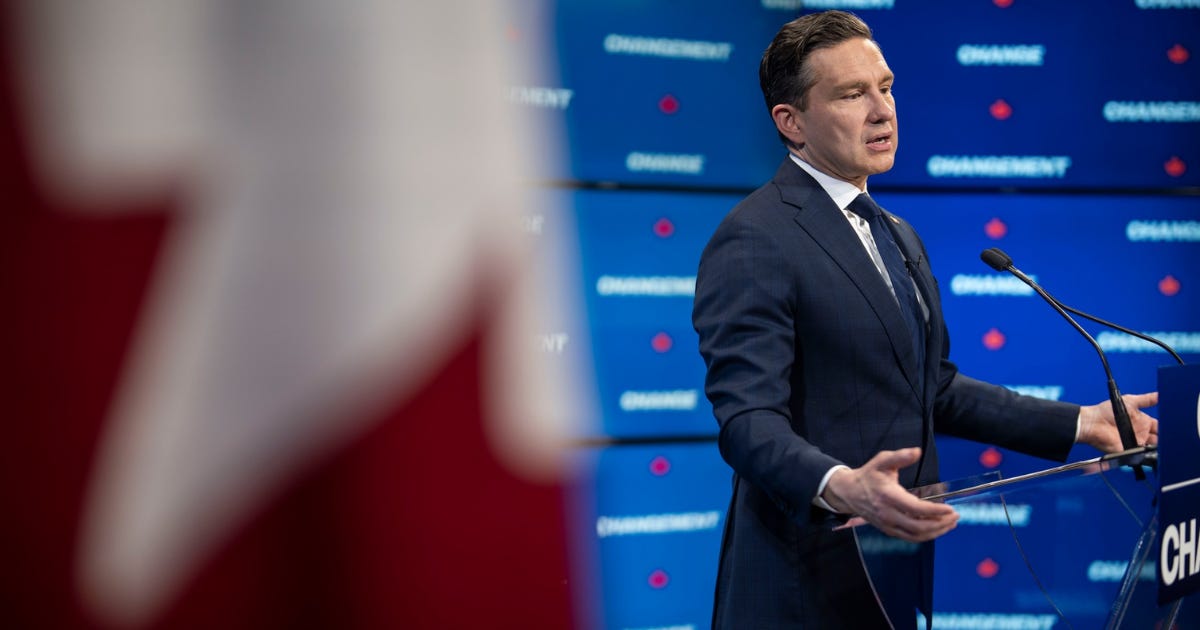Poilievre blasts Carney after U.S. commerce secretary dismisses auto deal hopes
Conservative Leader Pierre Poilievre launched a blistering attack on Prime Minister Mark Carney in the House of Commons on Wednesday, accusing him of capitulating to U.S. interests.
Conservative Leader Pierre Poilievre launched a blistering attack on Prime Minister Mark Carney in the House of Commons on Wednesday, accusing him of capitulating to U.S. interests after the American commerce secretary dismissed any hope of a comprehensive auto trade deal with Canada.
The exchange followed reports that U.S. Commerce Secretary Howard Lutnick, speaking at a private Canada-U.S. summit in Toronto, said the U.S. had no plans for a wide-ranging auto agreement with Canada.
According to individuals in the room, Lutnick said the U.S. may keep buying auto parts from Canada, “but that’s about it,” and added that Canada should “come second” on auto policy.
During a fiery Question Period, Poilievre listed recent job losses in Ontario’s auto manufacturing sector and blamed the Prime Minister for failing to stand up to the U.S. administration.
“100 Oshawa GM workers lost their jobs with $4 billion of GM money going to the U.S. 900 Cammy workers in Ingersoll losing their jobs with those jobs going to the U.S. And 150 workers at Stellantis being sent home while $8 billion of Stellantis money goes to the U.S. The Prime Minister failed to stand up for auto workers yesterday. Will he do so now?”
Carney, who met with President Donald Trump in Washington on Tuesday, failed to secure any new progress on auto tariffs — but said Canada had secured momentum in other areas. When pressed directly by Poilievre on whether he demanded auto tariff relief during the meeting, Carney said: “Our agreement yesterday is to focus now on steel, aluminum, energy. Those negotiations on auto continue — from the strongest position in the world.”
That statement prompted accusations from the Opposition that the Prime Minister was sidelining the auto file at a critical moment.
“While the U.S. Commerce Secretary just came out and said the 25 per cent tariffs will stay in place… the Prime Minister is offering a trillion dollars of Canadian investment money, and still he can’t win anything for our auto workers,” Poilievre said. “What does he say to those thousands of auto workers that are out of work because of his weakness?”
Carney defended the broader trade framework and emphasized that Canada has the most favourable auto tariff rate of any major U.S. trading partner.
“What we have at this point with the United States for the auto sector is the lowest tariff in the world — less than 10 per cent. Lower than Europe, lower than Korea, lower than Japan,” he said. “We are still negotiating because, as the president said yesterday, the Prime Minister of Canada is a tough negotiator.”
Poilievre dismissed that characterization as empty flattery.
“Give me a trillion dollars, and even I will say something nice about this,” he quipped. “For the workers in Ingersoll, in Windsor, and in Oshawa who have lost their jobs after the Prime Minister promised to protect them — how will they ever trust this Prime Minister again after he betrayed them?”
Foreign Affairs Minister Anita Anand rose in defence of the government’s record, pointing to federal investments and support programs for manufacturers and supply chain development.
“From Ingersoll to Windsor to Oakville to Oshawa, on this side of the House, we will not let Canadians down,” Anand said. “We are supporting the aggregate business and we will always be there for Canadian workers.”
Poilievre continued to press the issue throughout the session, saying Canadian families are being left behind while Washington gets everything it wants.
“There are auto workers who are sitting at home right now who do not know how they’re going to pay their mortgages,” he said. “There’s been no deal. There’s been no win. And now for these workers, there is no job.”
Carney maintained that the government was still engaged in hard negotiations and had made Canada’s expectations clear.
“That is why we are fighting hard for our auto workers,” he said. “And I put the president on notice yesterday about the consequences of not having that accord.”




The US will listen to Canada when:
Supply Management is terminated,
Commits to purchasing the F35s - 88 (we keep capitulating),
Purchase much needed nuclear powered submarines (existing 4 are junk)
Shore up the Vancouver border,
Deal with the illegal Drug manufacturing,
Deal with the illegal migration.
And Stop whining.
Interesting (not in a good way) that while defending and fully supporting the abomination that is Supply Management which protects a small but loud and powerful group.
One who sadly has great influence over politicians of all stripes it certainly looks like Carney and his merry gang of incompetent trained seals from LeBlanc down are willing to sacrifice the huge number of jobs, mostly in Ontario, directly and indirectly associated with our Auto and Truck production.
... AND YET ...
Repeatedly we hear BS from Carney on down about "Progress being made" but see pretty much absolutely NOTHING in terms of results that even remotely benefit Canada, its industries or its citizens.
.... Once again and with apologies to WS ...
A TALE TOLD BY AN IDIOT FULL OF SOUND AND FURY SIGNIFYING NOTHING